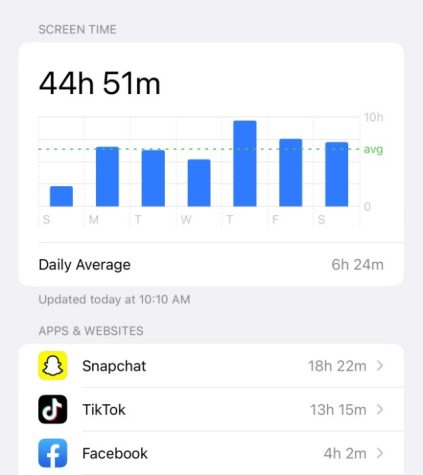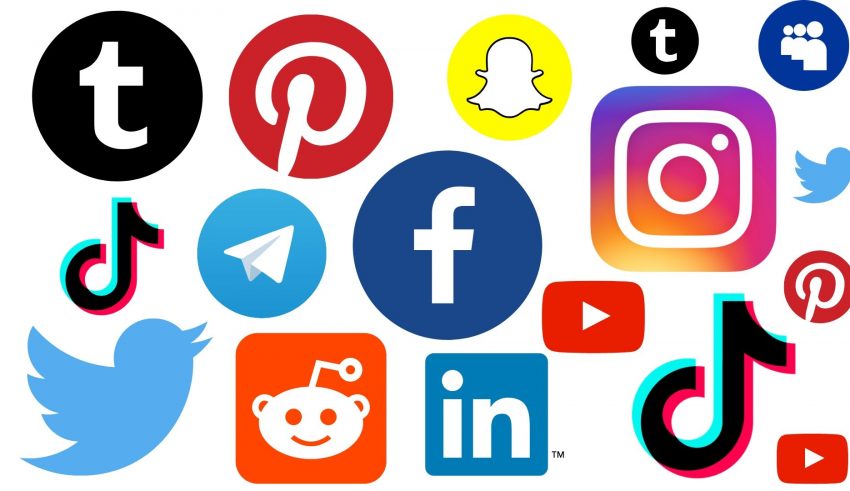Is Social Media Really Social?
Why You Should Cut Back on Screen Time
How do you feel after spending hours on social media–excited and relaxed or drained and defeated?
Cutting back on your social media time is advantageous to your health and well-being.
Social Media and its Uses
Social media is a combination of applications and websites that allows users to create content, communicate with each other and share information. Many students use platforms such as FaceBook, TikTok, Instagram, Twitter and Snapchat for several hours a day to keep up with the latest trends, interact with others and escape their problems.
While social media applications keep us updated, news sites like CNN and The New York Times serve that purpose just as well. You can also just simply call others by phone to interact and communicate.
The Impact of Social Media
As a society, we have moved past pleasantries and meaningful conversations. We would rather comment on posts and send direct messages through social media. While many people use social media to buy, sell and promote, others use social media to bully and prey on others.
Kyla, a psychology major at Delta State, says that social media used to negatively affect her life.

“I would spend on average a total of 12 hours a day on my phone,” Kyla says. “I work six to eight hours a day which means I was not getting enough sleep. At night, I would scroll on TikTok, Facebook, and Snapchat.”
The Mayo Clinic suggests that Kyla has a point: “However social media use can also negatively affect teens, distracting them, disrupting their sleep, and exposing them to bullying, rumor spreading, unrealistic views of other people’s lives and peer pressure.”
Kyla decided to take extreme measures to promote her health. She deactivated all of her accounts.
“I knew it was time for me to deactivate all social media and take control of my life again,” she says. “Social media is definitely addictive. Now that I let it go, I feel much healthier. Once I let social media go, I decided to get more involved on campus and in the community. I have made several new friends and feel more energetic.”
Tips for Social Media Use
You don’t have to go cold turkey. Even minor changes surrounding your social media use can be beneficial. For instance:
- Set a limit. Limit your time on social media to about two to three hours a day to ensure you have enough time to study, eat, sleep and interact with your family and friends.
- Monitor social media. It is important to watch that you are interacting with real people. You should not give out personal information such as your address. You should also never send money to strangers.
- Display proper netiquette. You should always make sure you are being respectful to others and yourself. Never spread information that is not true.
Time to Log Off
Social media has been around for numerous years. Overtime, it has gotten more advanced and allows individuals to cause more harm to themselves and others. The overuse of social media has been known to be the cause of many health conditions like depression, anxiety, and stress.
While it may seem like the best idea to scroll on social media, it is actually more beneficial to read a book to learn something new. One can also start a conversation with the individual sitting alone and build a lasting friendship.
Instead of just deleting all social media, individuals can just limit their social media usage and notice a difference in their behavior and health. Learning a new skill, joining a club and sparking a conversation with a stranger will be just as satisfying as using social media.

Jaylen Townsend is a junior at Delta State. He is from Shelby, Miss., and is one of three siblings. He is the middle child with an older sister and younger...



